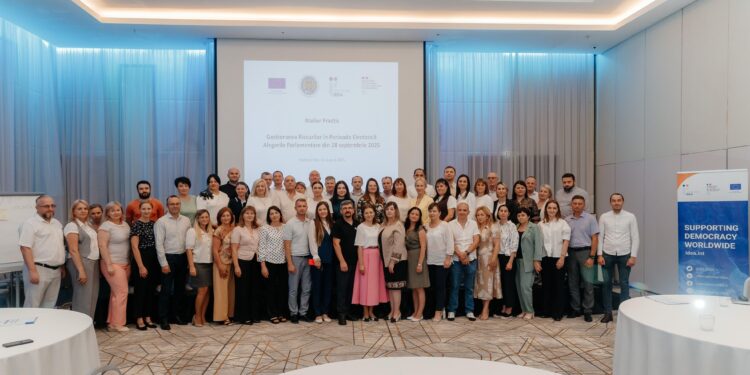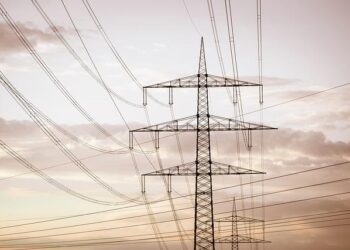As Moldova approaches its 2025 parliamentary elections, the stakes for the country’s democratic future have never been higher. Situated at the crossroads of East and West, Moldova faces mounting internal and external challenges that threaten to undermine its sovereignty and democratic institutions. In this context, the upcoming elections are not just a routine political event-they represent a critical test for Moldova’s commitment to democratic governance and its alignment with European values. The Center for Strategic and International Studies (CSIS) examines why these elections matter profoundly, both for Moldova and for the broader regional security landscape.
The Stakes of Moldova’s 2025 Parliamentary Elections for Regional Stability
The upcoming parliamentary elections in Moldova represent more than a mere political ritual; they are a critical juncture with far-reaching implications for regional stability in Eastern Europe. Moldova, situated between the European Union and Russia, occupies a geopolitical crossroads where democratic progress and authoritarian ambitions collide. The composition of the next parliament will determine the country’s path-whether it will deepen its integration with Western institutions or pivot towards Moscow’s influence. This electoral outcome carries significant weight not only for Moldova’s sovereignty but also for the balance of power in a region increasingly marked by tensions and competing interests.
Key challenges underscore the high stakes of the vote:
- Potential escalation in Transnistria, the breakaway region backed by Russia, which remains a flashpoint for conflict.
- The future of Moldova’s energy independence amidst fluctuating relations with Russia and the European energy market.
- Preservation of democratic institutions at a time when authoritarian pressures loom large.
| Key Issue | Potential Impact | Regional Actors |
|---|---|---|
| Transnistria Conflict | Heightened instability or negotiated settlement | Russia, Moldova, OSCE |
| Energy Policy | Shift towards EU energy markets or dependence on Russia | EU, Russia, Moldova |
| Democratic Governance | Strengthened rule of law or democratic backsliding | Western partners, local civil society |
Challenges to Electoral Integrity and Democratic Resilience in Moldova
The upcoming elections in Moldova face significant hurdles that could undermine the democratic process. Widespread concerns include voter intimidation and disinformation campaigns designed to sway public opinion and depress voter turnout. Digital platforms have become battlegrounds for spreading false narratives, complicating the efforts of electoral commissions to maintain transparency. Additionally, external pressure from geopolitical actors seeking to influence outcomes poses a constant threat to national sovereignty and the impartiality of the electoral system.
Structural weaknesses within Moldova’s political institutions exacerbate these challenges. Issues such as limited resources for electoral oversight, inadequate training for polling officials, and the persistence of corruption cast doubt on the credibility of the vote. Below is a snapshot illustrating some key vulnerabilities:
| Challenge | Impact on Elections | Potential Solutions |
|---|---|---|
| Disinformation & Media Bias | Skews voter perception; erodes trust | Strengthen media literacy; independent monitoring |
| Electoral Administration | Increases irregularities | Improve training; resource allocation |
| External Influence | Compromises sovereignty | Enhance cybersecurity; international oversight |
| Corruption | Undermines fairness | Enforce anti-corruption laws; transparency |
Strategic Recommendations for International Support and Domestic Reform
To safeguard Moldova’s democratic trajectory, it is imperative that international partners prioritize targeted support channels rooted in transparency and accountability. Enhancing electoral integrity through robust monitoring mechanisms and technical assistance can fortify public trust in the 2025 parliamentary elections. Additionally, strategic investments in civil society organizations and independent media will empower grassroots movements to hold elected officials accountable and combat disinformation campaigns effectively. Equally important is the reinforcement of judicial independence, as only a credible legal system can guarantee adherence to democratic principles and curb political interference.
On the domestic front, Moldovan policymakers must embark on comprehensive reforms that address systemic vulnerabilities while promoting sustainable development. Prioritizing anti-corruption measures, electoral reforms, and decentralization will help dismantle entrenched power structures and elevate the voices of marginalized communities. The table below summarizes key areas for actionable reform and corresponding international support initiatives:
| Key Reform Area | Domestic Priority | Recommended International Support |
|---|---|---|
| Electoral Integrity | Modernize voting infrastructure | Technical assistance; election observation |
| Anti-Corruption | Strengthen prosecutorial independence | Capacity-building; knowledge exchange |
| Media Freedom | Support independent journalism | Funding for media outlets; training programs |
| Judicial Reform | Guarantee fair trial standards | Monitoring; judicial training |
| Decentralization | Empower local governments | Policy guidance; infrastructure support |
Wrapping Up
As Moldova approaches its 2025 parliamentary elections, the stakes extend far beyond its borders. These polls will serve as a critical test of the country’s commitment to democratic principles amid escalating regional pressures and internal challenges. Observers and policymakers alike will be watching closely, recognizing that the outcome could shape not only Moldova’s political trajectory but also the broader balance of influence in Eastern Europe. Ensuring free, fair, and transparent elections will be essential in defending democracy and reaffirming Moldova’s place on the path toward European integration.
















